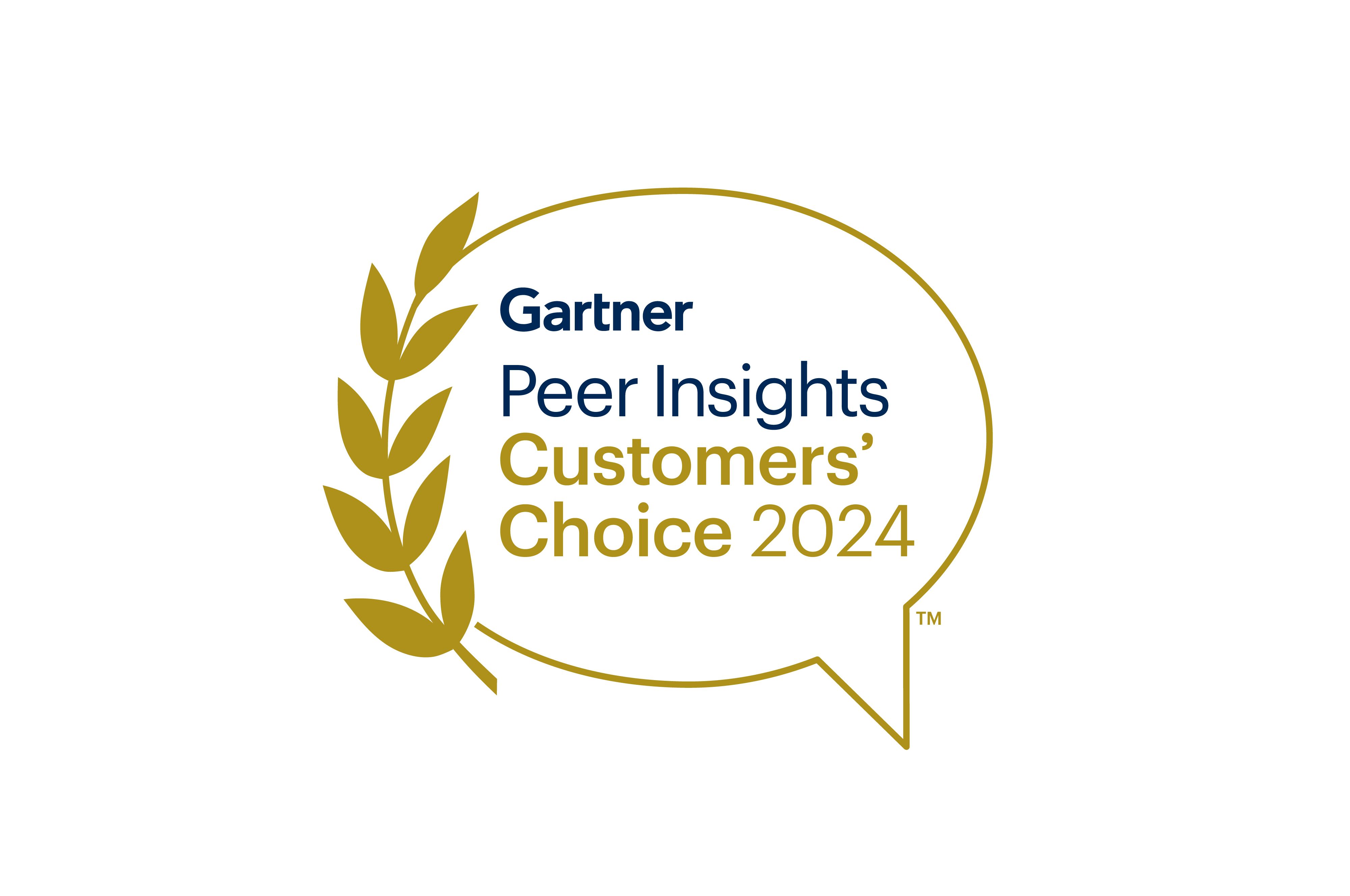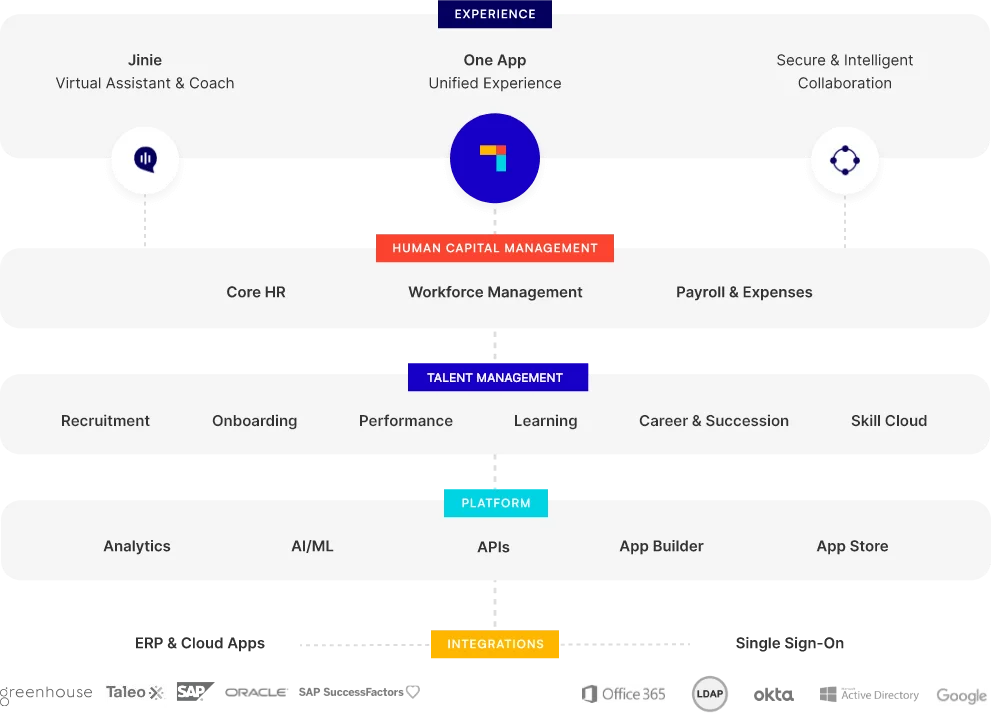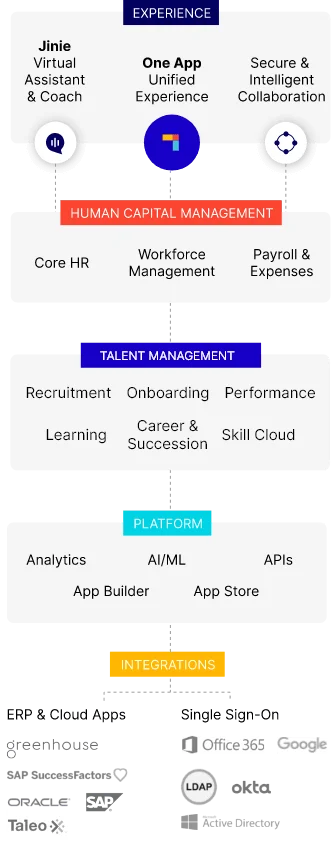Are you also fascinated by the buzz around performance management that is grabbing the attention of HR leaders across industries? Well, you should not be surprised to know that proactive performance management can improve employee performance by more than 13%. In fact, reports indicate that companies that prioritize improving key aspects of employee performance enjoy more than 70% engagement levels.
Performance management is a strategic approach that allows you to define expectations from individual employees and then reward them for exceptional performance. This approach is particularly effective in establishing a culture of ongoing improvement and engagement in the company.
In regions like the Middle East, where diverse workforces and rapid business growth are common, performance management becomes even more crucial. It helps companies navigate through the unique challenges and opportunities presented by such dynamic environments.
Javeed Khan, Director, Talent Acquisition and Global Mobility, underscores the importance of this strategy:
“We set clear and measurable goals for each employee, ensuring alignment with the organization’s objectives. This alignment is essential for improved employee engagement and productivity.”
In this blog, we will delve deeper into the importance of unlocking team potential through performance management, with a special focus on its implications and benefits for companies operating in the Middle East.
Role of Performance Management in Achieving Strategic Goals
Performance management is a process where leaders and managers actively monitor and evaluate the performance of their teams. In the dynamic and diverse business landscape of the Middle East, performance management has gained significant popularity. It provides managers with a robust tool to navigate the unique challenges and opportunities of this region, ensuring their teams are performing at their best.
Somaya Abdulkarim, Group HR Head, Sharaf Group, adds depth to this approach:
“We break down larger organizational goals into functional, team, and individual levels, ensuring regular follow-ups to monitor progress. This method not only clarifies priorities but also helps employees understand their contribution to larger goals.”
According to our latest Performance Trends report, 69% of companies in the Middle East transparently link employee objectives with leadership priorities, highlighting the importance of performance management in the region. A successful performance management strategy is continuous, providing managers with opportunities to guide and reward their team members. It also empowers employees to have many chances to improve their skills.
Why Performance Management Matters: Unlocking Potential and Productivity?
With an increasing number of businesses in the Middle East understanding the relationship between employee recognition and retention, performance management has emerged as a crucial pillar for success. Let’s have a look at the different aspects of this crucial process:
- Driving Development Initiatives: This process allows you to turn potential setbacks into growth opportunities. By identifying areas where your team currently lacks expertise, organizations can create training programs that not only enhance their skills but also prepare them for future challenges. When combined with agile HR technology, performance management creates opportunities to steer employees in a direction best suited to their abilities and the company’s goals. This strategic approach ensures continuous growth and development, keeping the organization at the forefront of its industry.
- Clarifying Roles and Expectations: Performance management helps you get rid of any ambiguity around roles, expectations, and reporting hierarchies. When your team understands the responsibilities and objectives clearly, they can work with greater confidence and efficiency, contributing to the overall progress of the enterprise.
Mariam Ibrahim Murad, Head of Performance Management, Dubai Department of Economy and Tourism, elaborates on the process:
“We utilize a top-down approach for setting performance goals and emphasize ongoing development meetings throughout the year. This ensures performance management is a supportive and continuous process.”
- Cultivating Open Communication: Lack of communication is a common workplace issue. Performance management creates a two-way feedback loop between you and your staff, encouraging open dialogue. This exchange helps with addressing different issues and enhances employee morale by making them feel heard and valued.
- Boosting Retention through Recognition: Recognition is a powerful motivator and retention tool in modern work environments. It allows you to easily communicate any appreciation for hard work and dedication to specific employees. With performance management, you can develop a robust recognition program that can help ensure higher job satisfaction and loyalty amongst your teams.
- Enhancing Engagement and Loyalty: Performance management transforms jobs into careers with purpose and potential. You must involve your employees in the process of setting clear goals and then provide them with the necessary support. This way, you can cultivate a committed workforce that not only achieves but exceeds expectations. This engagement results in enhanced loyalty, satisfaction, and productivity.
- Aligning Goals and Achievements: Performance management helps you easily align individual objectives with broader company goals. This approach assists with ensuring a cohesive direction for all team members. As everyone understands their role in the company, it creates a sense of ownership and commitment that drives personal and business growth.
The Lasting Impact of Effective Performance Management
Have you and your team explored the importance of performance management within your enterprise? Sharing your insights with fellow leaders is essential for creating a culture of ongoing improvement. In the competitive business landscape of the Middle East, neglecting this aspect could lead to significant issues down the line.
Consider this: How well does your current system identify areas for improvement? Are your employees engaged in this process? Crafting a well-thought-out performance management plan might require time and effort, but the investment will certainly pay off by improving overall work efficiency and employee satisfaction.
This is where PeopleStrong’s HR Tech 4.0 platform comes into the picture. By partnering with PeopleStrong, you can align your performance management processes with the latest market trends. Our experts are always available to help align your business objectives with employee goals, ensuring a motivated, engaged, and productive workforce.
For instance, consider the case of Flydubai. Our team worked closely with their HR department to integrate a custom HR Tech Al-Talent Operating Suite with their existing systems. This 12-week project streamlined data flow and simplified logins. A flexible framework was introduced, enabling employees to set measurable objectives, with 80% achieving this within three days of the implementation. To enhance transparency, a ‘Dynamic Review Form’ was also implemented for the airline’s 5000+ workforce, providing real-time updates on managers’ ratings.
Let’s also consider the example of Oman Air, where our experts implemented an effective performance management system for the crew spread across 45+ locations in 25+ countries. They eliminated bias during the performance evaluation process, and it took employees less than 2 minutes to update their weekly progress on the KPIs.
These are just a few examples of how our performance management solution can make a significant impact. For more information on how our team can help with your performance management requirements, check out our Performance Management platform.













